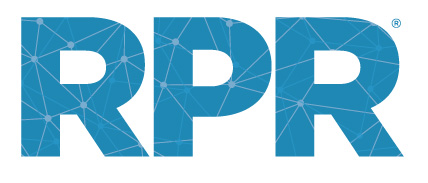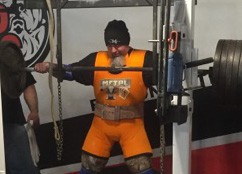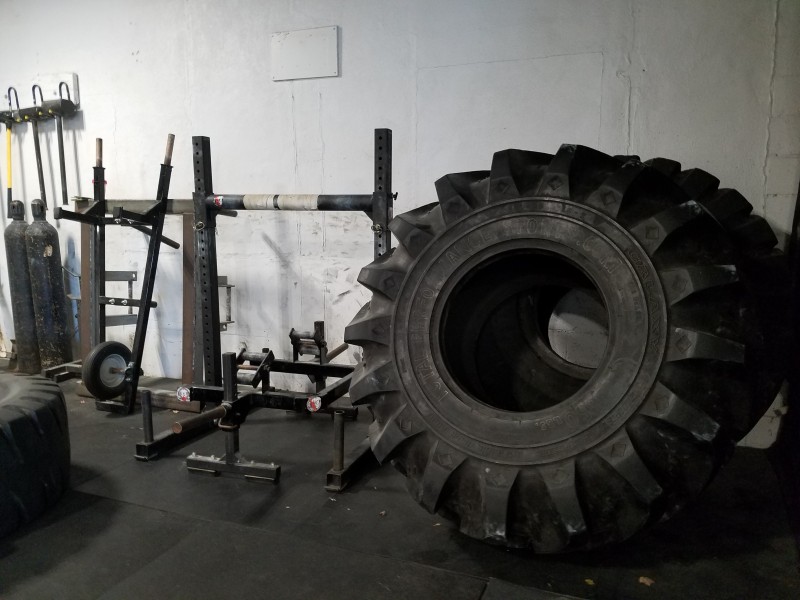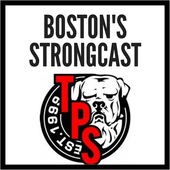
In the past few years I think we have learned more about the body and how it works as it relates to training and injury than we have in the past 25 years combined.
There have been a few “Game Changers” in the near past, and today, I am telling you, this is the biggest one.
A few examples:
- ART Treatments
- Graston Treatments
- Acumobility tools and drills
- More thorough understanding of bracing and its importance
Did you notice a common thread there?
It’s all related to soft tissue.
The big piece of the picture that many of us, maybe most of us have missed it what drives the skeletal system.
All the treatments are based on soft tissue.
But what controls the soft tissue?
The brain and the nervous system, with the nervous system being the most important.
A big problem is that, as JL Holdsworth points out, is that much if not all of what we know about the muscular system and how it works is learned from cadavers.
Research on dead bodies has taught us a lot, but one major component is missing. When you are dead, there is no electrical (nervous system) activity.
We need to learn more about this, and JL has.
So have I.
I had JL out to TPS last weekend to a fully sold out RPR Level 1 seminar.
Let’s go over what RPR is.
RPR is Reflexive Performance Reset.
It is a system that is so mind numbingly simple to understand and implement, and so immediately noticeable and effective, that I don’t know why you wouldn’t do it every day.
The nervous system controls everything in your body.
RPR unlocks your nervous system and allows it to do its job.
It does not change your muscles, it does not do any harm, and you literally cannot screw it up.
It is so effective that if you implement it less than optimally, or totally screw it up, you will still get some positive benefit.
Believe me, I’ve been doing it for about 9 months with some outstanding results and what I learned at the seminar is that I’ve been doing to WRONG the whole time.
Implementing RPR techniques will:
- Effect immediate improvements in breathing
- Effect immediate improvements in performance
- Effect immediate improvements in movement
- Effect immediate decreases in pain
- Effect immediate improvements in your ability to recover, intra workout, intra game and at rest
- Effect immediate improvement in sleep quality
- Drastically decreases risk of injury
- Over a short amount of time it will improve mood, relaxation, state of mind and well being
Yes, these are big claims.
I can tell you from my personal and professional experience that it is all true.
RPR is a Game Changer.
Many of us are walking around jacked up due to a wide variety of circumstances ranging from:
- Work
- Life
- Training
- Lack of sleep
- Relationships
- School
- You get it.
All of the stress in our individual lives is cumulative and has a short and long term effect on us.
When we look at how this affects us we need to understand the nervous system, at least in a rudimentary fashion.
To make it as unscientific as possible, let’s just say that there are two pathways:
Sympathetic
Parasympathetic
To explain, here is a definition from the Google Machine:
“Sympathetic is responsible for the response commonly referred to as "fight or flight," while parasympathetic is referred to as "rest and digest."
RPR allows us to move QUICKLY from sympathetic to parasympathetic.
As an example, let’s say you are a lifter and you are hitting max effort squats, obviously you want your sympathetic nervous system firing your muscles so that you can SFW right?
How long does it take you to recover between sets and be ready for the next one?
5 minutes?
8 minutes?
More?
What if we gave you a technique that would cut that time in half more?
Would you lift more?
Would you recover between sets faster?
Would you recover between training sessions better?
Yes.
How many of you go home from the gym and are jacked up all night after a session?
I’ll bet a lot.
What if you were almost completely relaxed 30 seconds after the set (parasympathetic), and then able to “turn on” your nervous system (sympathetic) for the next set FAST?
I’d argue that you would lift more consistently and isn’t that one of our primary goals?
Another MASSIVE benefit of RPR is injury recovery and prevention.
As we discussed already, your nervous system drives the bus.
If your nervous system isn’t working properly the correct muscles will not do their job.
Something will compensate.
Almost 100% of the time this leads to injury.
It may not be today, but it will occur.
When it does, it may be catastrophic.
What if you have an injury or pain?
RPR will help that too.
Much of our pain is from the nervous system not doing its job and forcing the soft tissue to compensate.
Here is a common example.
Your diaphragm and your Psoas are connected.
When your breathing patterns are poor, and you are constantly chest breathing (as a huge majority of society does) you are sympathetic.
When you breathe in this manner you often have a “disconnect” between your Psoas and diaphragm, meaning they are, for lack of a better term, stuck together.
This forces compensation.
When the Psoas is not functioning as it should it leads to compensation patterns.
Quads, calves, abs and other muscles will do jobs they were not designed to do, and this will lead to injury.
Using RPR to reset your breathing and diaphragm function will then allow these compensation patterns to go away.
It may be immediate, or if you have been jacked up for a long time, like me, it may take a while.
The point is that RPR will have an immediate effect.
You will be more better right away than you were before the treatment.
Today, I am not using myself as an example.
I’ll use one of my lifters.
She jacked up her back a while ago doing of all things, Goblet squats as an accessory exercise.
That’s weird.
But knowing now, what I didn’t know then, I am sure it was due to her Psoas not working properly.
She has a very high stress job and is not the best stress manager.
This is an example of what I listed above. Shitty breathing.
It seems too simple, bit it is what it is.
The back injury never really went away.
She has a meet in a few weeks and we tested the squat on Monday. During warmups, she tweaked her quad and was unable to continue.
I did a quick breathing reset and then some Psoas and quad work.
She was in less pain, but not able to finish the training session.
I had her in last night, before we tested her bench and she was in a fair amount of pain and could ot do a bodyweight squat.
I don’t claim to be a physical therapist, doctor, or anything like that, but I know a little about the body and how it works.
Using my old way of thinking (because it was my current level of knowledge) I would have looked at what tissue was jacked up and figured out how to help.
Last night, I did the opposite.
I followed the RPR playlist and started with a breathing reset. Right off the bat, she was a heavy chest breather and had trouble breathing into her diaphragm.
The breathing reset opened up the space that needed to be opened up and allowed her to breathe properly.
Immediately.
Then I got her on the table and proceeded to go through the reset drills.
I discovered that all of the areas that should be compensating were tight and painful to the touch.
Her Psoas, quad, calves and hamstrings and lats were like steel. Not in a super toned muscle steel, more like a piano wire that was about to snap.
We went through the process and got everything looser and moving better than it was at the start.
It didn’t cure her, but it did improve her and that is the goal.
Be better.
She was able to do a full depth body weight squat right away with no pain.
She then went and tested here bench.
That’s a win.
Here’s another example.
5 Minute Fix: No, it’s less.
Perform better with almost zero effort.
I was doing my warmups yesterday and a friend who is a Pro Strongman asked what I was doing.
I gave him a short explanation, started over and went through the RPR Wake Up Drills with him.
He did them to himself and found many areas that were jacked to be far less jacked.
In about 4 minutes.
Yup.
Taking my time, I taught him how to do it on himself in under 5 minutes.
Here’s the kicker.
I talked to him after his training session. He did a bunch of ass-kicking medleys with an ass load of weight.
He said that he felt like he was faster, recovering quicker between sets and actually did an extra medley because he was able to, and normally he would have been toast by that point.
Here is the real tell: I never mentioned that this could improve performance, recovery or anything like that.
I just said it was my warmup.
We talked after and I explained that RPR improves all of these things.
I’m pretty sure he was sold.
I am looking forward to getting him on the table and seeing how RPR can help him improve his performance at his next meet.
So how do you use RPR?
Well, the best way is to learn at a seminar or find an RPR provider.
We have 3 Level 1 providers at TPS, and 2 Level 2 providers affiliated with us.
Yeah, I now like it sounds like I am schilling for RPR and I am, but it is because I am 100% a believer in what it can do after what I have seen on me, a few of my athletes, Spud, and JL.
We have a coaches meeting coming up to insert RPR into the Dynamic Warmup for our lifters in the TPS Method for Powerlifting as well as out fitness program, TPS Method, Training for Life (TFL).
It will add about 2-3 minutes to the warmup, but will pay off on spades.
My best advice is that if you want a 5 Minute Fix to perform better with almost zero effort, find an RPR seminar or provider and go in with an open mind.
The worst possible outcome is that it will get you to breathe through your diaphragm and that alone is worth it. However, I am sure it will do much more than that.
After doing it for 9 months on myself, I went form not being able to bench press a 45-pound bar with massive pain, to hitting 355 with chains two weeks ago with no pain.
AND: I was doing it wrong. After learning to do it right, I am in almost no pain.
Maybe I’ll start squatting a pulling soon.
AND:
Check out the latest episode of Boston’s Strongcast.
In this episode, sadly you will not hear my Masshole accent, but you will get a ton of high quality content.
TPS Director of Strength and Conditioning interviews TeamEliteFTS member Swede Burns of 5th Set.
Check it out on iTunes and on my site on the Podcasts page.
Ask me a question-Be sure and Type to Murph in the header
Find me on Google-search for Total Performance Sports Malden, Mass. The Best Gym in Boston, Facebook too.
Oh, yeah, follow us on Instagram too. TPSMalden
SHARE THIS!
#bostonsstrongest
Vincere vel mori













Go to the Google machine and search Polyvagal Theroy.
It should pop up in images.
I can't post external links here.
Vinceri vel Mori